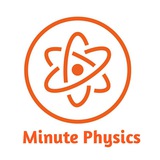This media is not supported in your browser
VIEW IN TELEGRAM
If you blow air through sand, it becomes a "fluidized bed," and acts just like a liquid.
@MinutePhysics
Powered By: Curiosity Tea
@MinutePhysics
Powered By: Curiosity Tea
This media is not supported in your browser
VIEW IN TELEGRAM
If you heat Quartz to the melting point, It will glow to glow white.
@MinutePhysics
Powered By: Curiosity Tea
@MinutePhysics
Powered By: Curiosity Tea
India has successfully launched its first observation mission to the Sun.
It comes just days after the country made history by landing near the Moon's south pole.
Aditya-L1 will be 1.5 million km (93 million miles) from the Earth, which is just 1% of the distance between the Earth and the Sun.
India's space agency said it will take four months to travel that far.
Tap the link in our bio to see how long it will take to reach its destination.
(📷 Indian Space Research Organisation)
#India
It comes just days after the country made history by landing near the Moon's south pole.
Aditya-L1 will be 1.5 million km (93 million miles) from the Earth, which is just 1% of the distance between the Earth and the Sun.
India's space agency said it will take four months to travel that far.
Tap the link in our bio to see how long it will take to reach its destination.
(📷 Indian Space Research Organisation)
#India
⭐ India became the fourth country to successfully dock two satellites in space on January 16, 2025.
The Indian Space Research Organisation (ISRO) achieved this feat with its SpaDeX mission.
👉 The SpaDeX mission involved two satellites, SDX01 (Chaser) and SDX02 (Target).
👉 The satellites were launched on December 30, 2024 from the Satish Dhawan Space Centre in Sriharikota.
@MinutePhysics
Powered By: Curiosity Tea
The Indian Space Research Organisation (ISRO) achieved this feat with its SpaDeX mission.
👉 The SpaDeX mission involved two satellites, SDX01 (Chaser) and SDX02 (Target).
👉 The satellites were launched on December 30, 2024 from the Satish Dhawan Space Centre in Sriharikota.
@MinutePhysics
Powered By: Curiosity Tea
This media is not supported in your browser
VIEW IN TELEGRAM
Galton's board
3,000 steel balls fall through 12 levels of branching paths and always end up matching the distribution of the normal distribution curve. Each ball has a 50/50 chance of following each branch, so that the balls are distributed below according to a mathematical binomial distribution.
@MinutePhysics
Powered By: Curiosity Tea
3,000 steel balls fall through 12 levels of branching paths and always end up matching the distribution of the normal distribution curve. Each ball has a 50/50 chance of following each branch, so that the balls are distributed below according to a mathematical binomial distribution.
@MinutePhysics
Powered By: Curiosity Tea
